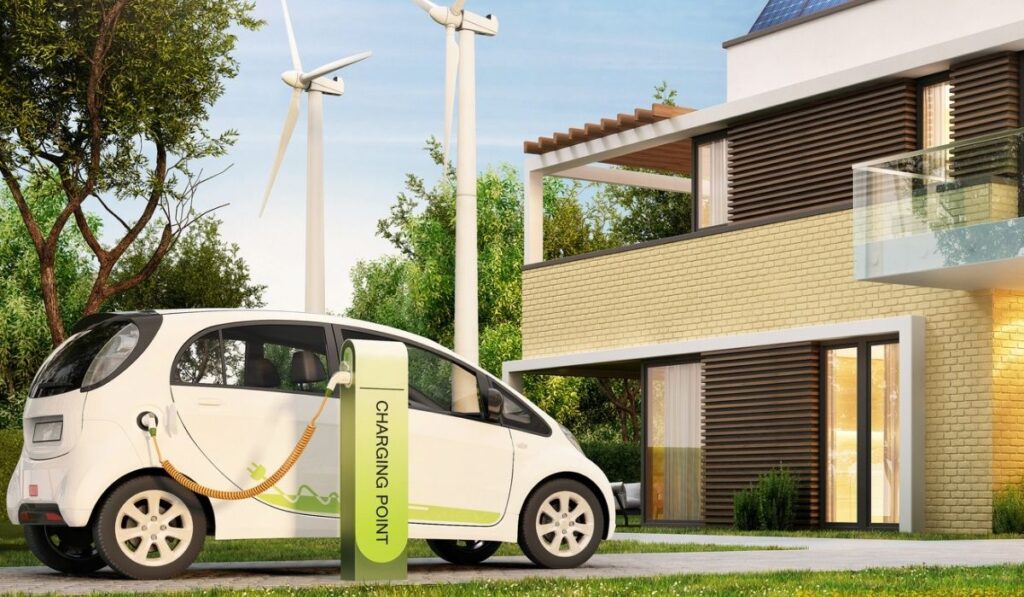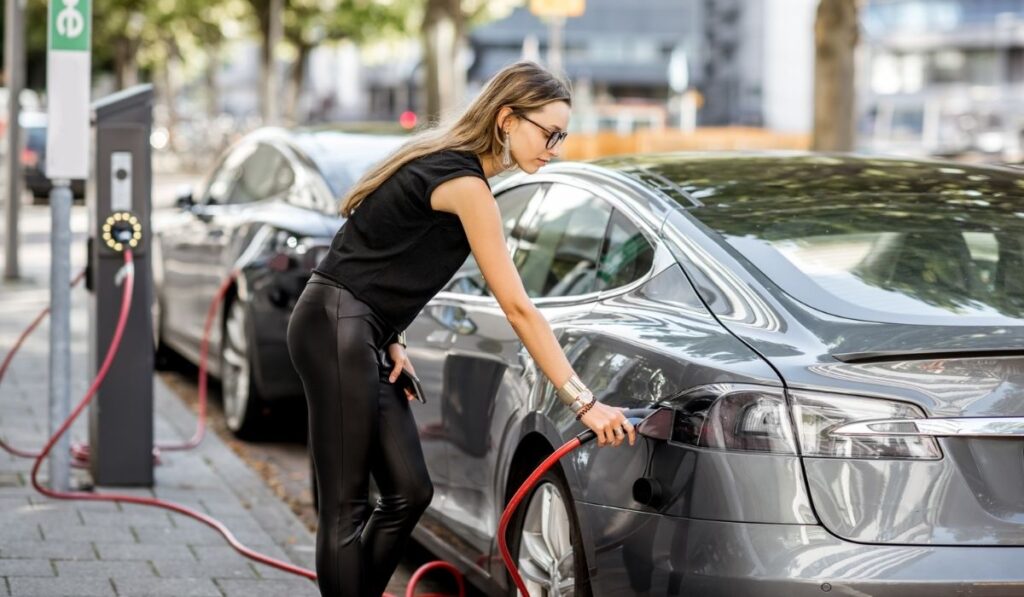With the world moving towards green solutions that can help us tackle the challenges posed to the environment, the automobile industry has teamed up with environmental crusaders to launch a range of electric cars. But one question that’s repeatedly come up as people make the switch from traditional to electric cars is whether they’re safe.
Despite some safety concerns, Electric cars are considered at least as safe as conventional cars. Although their lithium-ion batteries are combustible, the risk is minimal and they must pass strict safety verification tests before being used. The batteries are also protected from physical shock.
If you’re looking to go green yourself, you’re in the right place. Let’s take a look at the various aspects of EV safety so you can feel at ease when you’re out on the road. Electric cars are a new technology so it’s right to ask some questions about how this tech is implemented and if it’s safe, but you’ll likely be surprised at how far the industry has come already.
How Safe Are Electric Cars?

Aside from driving and range anxiety, one of the most important concerns for potential electric vehicle buyers is safety. There are plenty of concerns out there, which can make buyers particularly reluctant about making the switch.
These concerns tend to revolve around the relatively narrow milage range of electric cars. But the good news is that electric cars are just as safe as any other vehicles, thanks to a variety of innovative features designed to keep users safe.
During the early stages of the COVID-19 pandemic, electric automobiles were one of the few positive economic signs; while overall car sales fell, electric vehicle sales surged to almost three million globally.
Overall, EVs go through the same careful crafting procedures as traditional cars, with an intense focus on making these systems as safe as possible.
To emphasize their efforts on safety, most manufacturers subject their electric vehicles to Euro NCAP testing, with nearly all performing identical to similar-sized internal combustion vehicles. Furthermore, electric vehicle reliability is as diverse as that of gasoline vehicles, according to Jake Fisher, Consumer Reports’ senior director.
Safety Concerns With Electric Cars
While ‘green’ and better for the environment, electric cars come with several potential safety concerns, including flammable lithium-ion batteries which can make accidents seem a bit more high stakes. In some cases, the lithium-ion battery may become another point of failure.
Lithium Batteries and Temperature Range
A lithium-ion battery’s operating temperature range is relatively low, ranging from 15˚to 45˚C. Traditional vehicles, meanwhile, are designed to function in temperatures ranging from -30˚C to over 50˚C.
Lithium will ignite and burn at a high temperature. If the battery explodes, the occupants and bystanders around the car may be in danger.
The Chemicals in a Battery
The chemicals making up anodes, cathodes, and electrolytes in a lithium-ion battery cell are made up of flammable materials and dangerous chemicals that can catch fire if exposed to air or water (like in a dramatic crash). The high volatility and flammability of these organic electrolytes constitute a severe safety concern for their usage in consumer and transportation industries.
Manufacturers, on the other hand, are addressing concerns about this issue by dividing the battery into individual cells separated by fire walls, reducing the impact of any one section becoming breached and causing a fire. At the very least, these dangers can be prevented from spreading to nearby areas.
However, thanks to the ongoing development and research, several engineers are developing safer electrolytes and other novel battery chemistries that are less flammable and emit fewer hazardous compounds.
How to Stay Safe While Using an Electric Car
One of the best things you can do to protect yourself as an electric car driver or owner is to gather as much information regarding your vehicle as possible and to strictly follow the safety instructions.
It can also help to try to grasp how the overall mechanism of your car works. In simpler words, do your homework and think about what you can do before signing on the dotted line to purchase an electric vehicle.
Use Non-Flammable Batteries
Nanotech Energy, a Los Angeles-based electric utility, has developed non-flammable batteries for electric and portable electronics that combine graphene-based electrodes with a proprietary electrolyte to generate a non-flammable system.
Graphene, which is 200 times stronger than steel, is used in the development of these non-flammable batteries. Many more alternatives are being developed and may only be available in the market after several years.
Shutdown Separators
A shutdown separator keeps the two volatile components of an electric battery apart while it charges. Many commercial electric vehicles include baseline separators with built-in shutdown mechanisms, as manufacturers utilize shutdown separators for added protection.
They aren’t a complete fix though, because fires do happen even though most separators in use have shutdown capability. To satisfy the increased demand for these separators, many companies are seeking to increase output of the separators.
Why Electric Cars Are Safer Than Traditional Cars

Electric cars are indeed better for the environment according to many studies. They emit fewer greenhouse gases and pollutants into the air than traditional gasoline vehicles.
In terms of energy efficiency and the cost of fuel (in this case electricity), EVs outperform traditional vehicles. Recent reports indicate that EVs have helped consumers save as much as $1,000 each year.
Even though there are many reasons to be optimistic about electric vehicles, safety problems (such as fires) have often dominated the news cycle, garnering quick criticism from the public. However, these types of incidents are quite rare, and the chances of an incident happening to you are extremely slim.
Designers and engineers have also addressed the concerns and taken efforts to make things safer. A protective cooling layer, like those seen in standard car radiators, has been placed around the batteries.
Overall, lithium-ion batteries pose a lower risk of fire or explosion than gasoline, so don’t let these risks discourage you from switching to electric!
